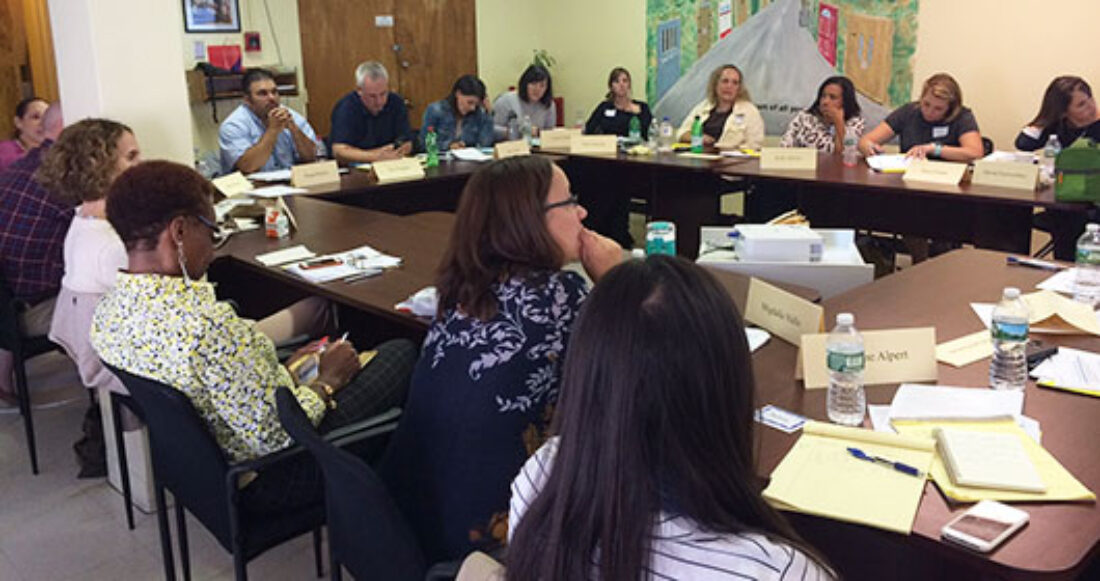Juvenile Justice System Focuses on Strengths of Youth and Families in Massachusetts

A new training curriculum being piloted in Massachusetts focuses on creating strong connections between frontline staff and youth in the juvenile justice system. The objective is to transform the efforts of staff in the system, who make important decisions that directly affect youth and have an opportunity to build on young people’s strengths to improve outcomes.
The Foundation has been supporting two Massachusetts-based institutions— Wheelock College’s Department of Juvenile Justice and Youth Advocacy and the School & Main Institute— to launch the training, called Re-Imagining Juvenile Justice. Wheelock College and the heads of the commonwealth’s juvenile court, juvenile corrections agency, probation agency, child welfare agency and public defender agency brought the idea of funding the pilot to the Casey Foundation.
“We believe in a system that locks up fewer youth and focuses more on developing the assets of youth and families,” says David E. Brown, a senior associate in the Foundation’s Juvenile Justice Strategy Group,who has been working with the two schools. “If we can influence how staff react to technical violations of probation and think about case plans, then we can move a system toward a more developmental approach.”
Probation officers, for instance, influence decisions at multiple stages of a young person’s case, such as whether to divert them from the formal system or to recommend either community placement or out-of-home placement.The traditional rigid, rules-oriented and surveillance-focused approach to probation too often results in confinement triggered by technical violations of probation, such as missed curfews, appointments or days at school.
The most critical part of positive youth development training, according to Brown, is emphasizing the fact that young people need a connection to a consistent, caring adult in order to flourish. “If frontline staff can become that caring adult or make sure each youth is connected to a caring adult, then the chance of a positive outcome is much higher,” Brown explains.
Twenty-one practitioners from across Massachusetts — probation officers, public defenders, juvenile justice agency staff and community-based organization representatives — attended the pilot training, which consisted of five monthly sessions and a capstone project. Feedback from the participants has been positive. “[It] is thought-provoking and challenging, forcing one to examine how and why we approach the youth of our work/world,” wrote Sandra Hilario, the assistant chief probation officer from the Middlesex Juvenile Court.
Now that the pilot is complete, the curriculum is being tweaked to reflect feedback and evaluation results and to make it applicable beyond Massachusetts. Once that is done, the curriculum will become an additional resource for JDAI practitioners who are rethinking the training they provide to their frontline staff across multiple connected agencies.






